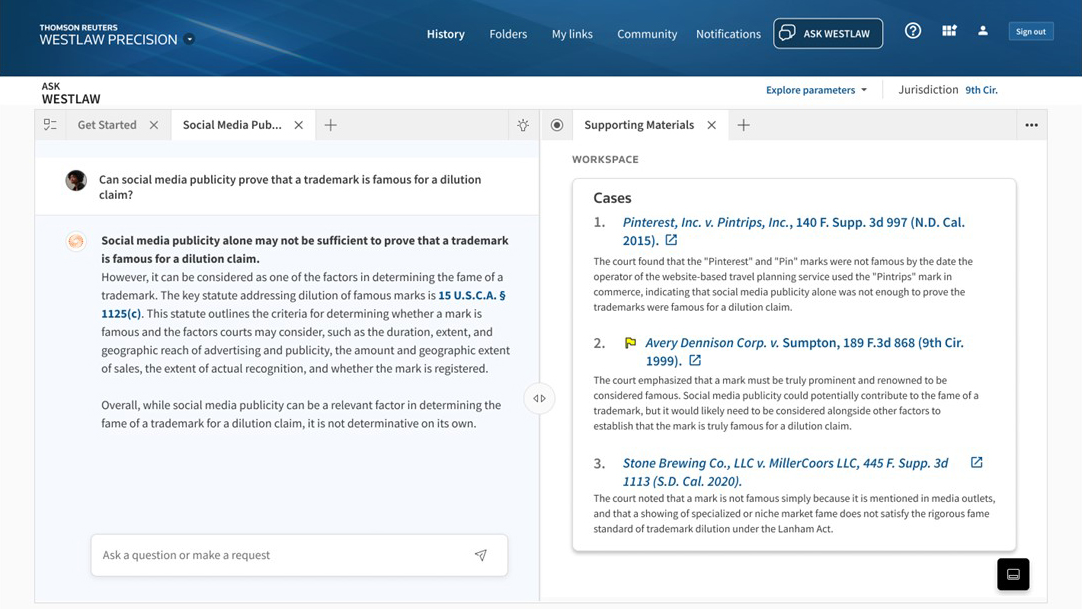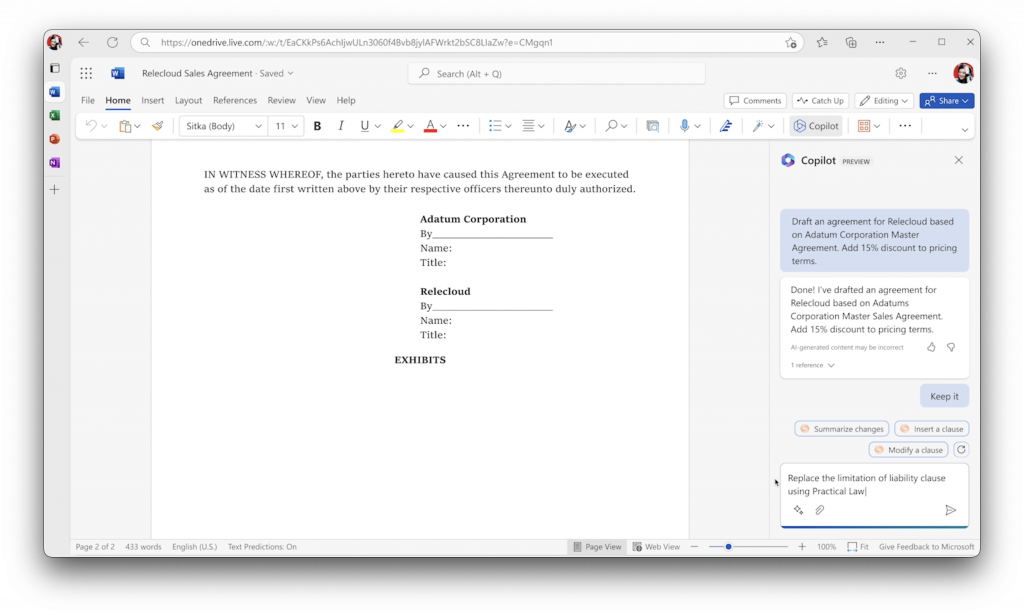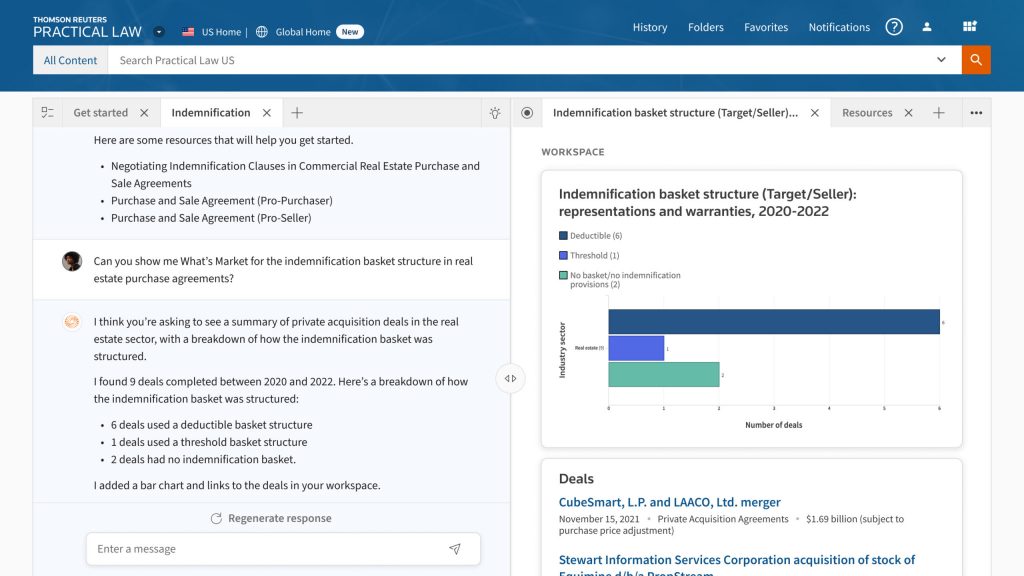As other legal technology companies have rushed to release products using generative AI, one of the largest, Thomson Reuters, has been unusually silent. It broke that silence slightly two weeks ago, when it announced plans to invest some $100 million a year in AI, including incorporating generative AI across its flagship products in the second half of this year.
Today, TR provided more explicit details regarding its plans for incorporating generative AI and chat into its legal products during presentation for the media by David Wong, chief product officer.
Specifically, it revealed that it will be incorporating chat functionality into its legal research and workflow products by the second half of the year, and that it will begin inviting select customers to test prototypes even sooner.
TR also announced a partnership with Microsoft by which its AI-powered products will be integrated within Microsoft 365 Copilot, Microsoft’s tool for providing advanced AI capabilities across its productivity suite.
TR and Microsoft have collaborated to develop a contract drafting solution that will combine TR’s software and content with Copilot for Word. A lawyer or legal professional working in Word will be able to draw on TR resources such as Practical Law and Westlaw as they draft.
Wong said this will be the first legal product to integrate with Copilot and one of the first of any third-party integrations.
With regard to TR’s primary legal products, its planned integrations are all still early prototypes. But the company offered previews today to members of the media. Among the integrations TR previewed:
Chat within Westlaw Precision. The integration of chat within Precision will appear as a two-panel screen, with a familiar chat interface on the left, where a user can ask questions and view the AI’s responses, while on the right the user will see the references that support the answers.
Chat within Practical Law. With a feature tentatively named Practical Law Dynamic, a user will be able to engage with Practical Law content through a chat interface. Similar to chat in Precision, the prototype shows a dual-pane interface with the chat on the left and references or related data on the right.
Generative AI within HighQ. Wong said that TR sees opportunities to use generative AI within HighQ to enhance automation of workflows and pulling of information from different sources.
Wong said that TR will be providing more details and more updates in the coming weeks and months.
As product prototypes become available, he said, selected customers will be invited to test them and help TR learn from their experiences.
He said that chat functionality will be integrated into TR’s legal research and workflow products in the second half of this year.
The Copilot scheduling is contingent on Microsoft’s timing, he said, but TR will be at the forefront of those releases.
On a broader scale, Wong said that TR is committed to leading the development of generative AI for the legal market, and is well positioned to do so given its history of developing AI in legal products.
 Robert Ambrogi Blog
Robert Ambrogi Blog

